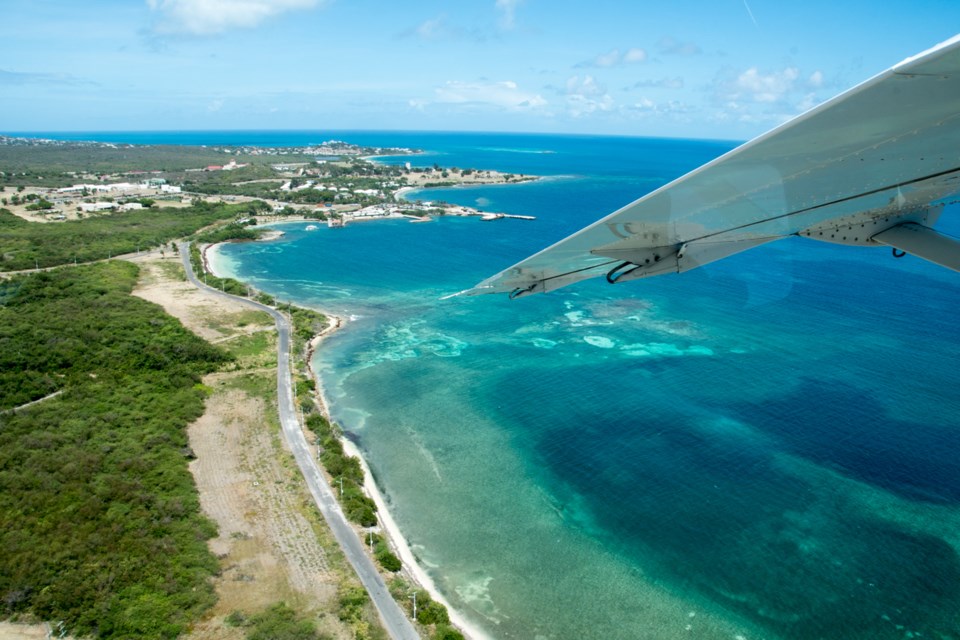Guelph residents donated generously last September to help those who lost their homes in hurricanes Maria and Irma, the fiercest hurricanes to hit the United States and the Caribbean in modern history.
This month, I’m in the region, on the tiny island of Barbuda, volunteering with others to help repair the roofs, which until now have been covered with temporary tarps. The repairs will go on for at least a year.
This island is 14 miles long and 11 miles wide. Its most famous visitor was Lady Diana, who prized its white beaches. When the island sustained a direct hit from Irma, inhabitants hunkered down in groups, seeking shelter in cement buildings as windows blew in and roofs ripped off. Cars rolled down streets like tumbleweeds.
You will need a magnifying glass to find this place on a map, and do not confuse the sovereign state of Antigua and Barbuda with Barbados, Bonaire, Bermuda or Bahamas.
In the aftermath of the storm, survivors exited their hiding places weeping and in shock. Virtually every single building sustained damage.
With more winds on the way, the entire island populace evacuated to neighbouring Antigua. Less than a dozen men, refusing to leave, hid out in caves, which the proud cave dwellers showed us.
Many organizations rush into disasters. Good for them. Thank you Guelph for your support. People urgently needed assistance. But the world tends to forget the urgency of a disaster once the TV cameras leave. We have short memories.
Our volunteer mission to help re-roof homes on the island has been hot, exhausting work. As the one-year anniversary of the storm approaches, many people are still living in tents and some government buildings are still under repair. Given this situation, many are not quite ready to return.
The number of resorts on the island you could count on one set of sunburned toes. They have not finished rebuilding and some seem abandoned, literally filling with white sand.
Like in so many disasters, building homes is a lengthy process, but that’s the easy part. The emergency is over, but the crisis remains in the lives of the survivors. It takes time to feel safe. That is also true for those fleeing war in Syria or rebuilding after the quake in Haiti or Nepal and it’s true in the Caribbean as a new hurricane season now approaches.
Increasingly, humanitarian organizations are globally reaching out to those in psychological crisis. They are offering lessons learned on how to cope with things like trauma. In Barbuda, posters advertise seminars on trauma given by international NGOs.
People who suffer major losses can spend their entire lives trying to feel safe again. We know that trauma can turn to addictions as some survivors struggle to cope.
These days, humanitarian aid is a process that moves through things like immediate relief, rebuilding infrastructure, trauma counselling, and building systems that mitigate future disasters through prevention and early warning systems.
Unlike a hole in the roof, pain is often invisible.
Maybe the lesson for those of us in Guelph and across Canada is that we need to remember to give each other much more time to heal than we think we need as we deal with our own crises, big and small.
We will never fully escape some traumas. Especially the big ones like hockey players killed on a bus or Torontonians mowed down by a van. We need to support those affected for a long time, including our friends with their psychological nicks and cuts. Healing takes time. Disasters may end, but personal challenges remain.
Barbuda is the definition of paradise. Its inhabitants have a friendly, easygoing demeanour. Wild horses and donkeys run freely. White sand beaches stretch out to the aqua Caribbean for as far as you can see. Large conch shells roll up on the beach as though they are begging to be collected. It is wonderful.
Today, I sit in our camp, listening to the hum of our generator. I feel the warm sea breeze on my face and I wonder what it all means.
For me it’s a good reminder, as I interact with store clerks or colleagues back home. We all put on a sun-filled, captivating face even when there is pain below. Let’s try to take care of each other.
Peace.
